Sustainability

Environmental sustainability, nature-based Judaism, and a sense of awe for our planet are incorporated into every initiative and experience at Shalom Institute.
Nature-based Judaism and the love of the Earth have been at the heart of Shalom Institute and our many signature experiences for over 70 years. In 2018, the Woolsey Fire destroyed our beloved 200 acres in the Santa Monica Mountains of Malibu. This began a deep conversation with our community about the immediate and devastating impact of climate change and our obligation to restore, rebuild, and educate in the most sustainable way possible. Our daily business practices, transformative experiences, and rebuild plans all reflect an emphasis on zero-waste, water conservation, native species, and the latest architectural eco-design and technology. Our Malibu campus will be rebuilt with sustainability at the forefront of our plans.
Bee & Pollinator Center | Apiary
Shalom Institute is home to 6 honeybee hives as well as our new Bee & Pollinator Center, an amazing space built to educate the community about the magnificence and
and importance of bees. The center offers an intimate experience where visitors can observe bees in their natural habitat. Equipped with comprehensive resources for teaching and learning, our center aims to inspire and inform about the vital role bees play in our ecosystem.
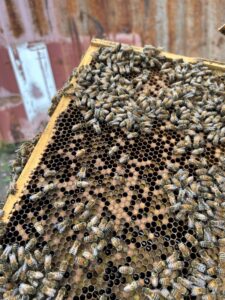
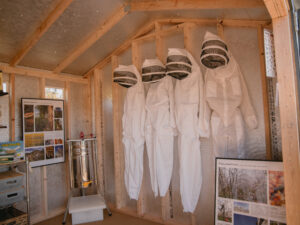
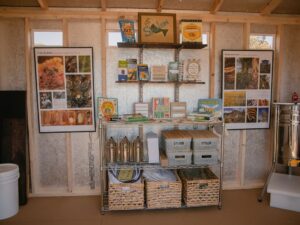
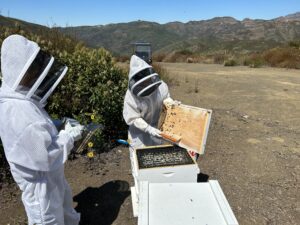
Sustainable Future Focus
Driving Sustainability Initiatives Is At Our Core
We teach the connection between Judaism, Israel, nature, and agriculture through hands-on activities like farming, gardening, harvesting, and composting. Our farm and our Malibu campus model Jewish social and environmental responsibility by using harvested produce in workshops, meals, and donations to local food pantries. Our animal program educates participants about Judaism’s relationship with animals. For many, it’s their first interaction with farm animals, which include horses, donkeys, tortoises, and honey bees.

We are Shomrei Adamah – Stewards of the Earth
Land Acknowledgment
We are stewards of the earth and we foster a sense of responsibility for and appreciation of the earth. We find wonder by connecting with nature, working with nature, and appreciating the natural world. We respectfully recognize the Chumash, Tongya, Kizh, and Tataviam People, who have stewarded this land throughout the generations, the land that we call home and on which we work, create, and share what has been so generously passed down to us.
We are a premiere JOFEE center in Southern California
What is JOFEE? JOFEE stands for Jewish Outdoor, Food, Farming & Environmental Education. These experiences connect people to Judaism, community, and the natural world through hands-on, thoughtful and engaging Jewish content across different ages, Jewish backgrounds, and religious approaches. To learn more about the JOFEE educational movement, click here.
Jewish Community Farming
The Jewish community farming field integrates Jewish experiential education with agriculture in order to cultivate community, promote environmental sustainability and food justice, foster opportunities for meaningful spiritual engagement and personal growth, and strengthen Jewish life. Shalom Institute’s Shemesh Farms is one of thirteen organizations across North America committed to the Jewish community farming field. For more information on the Jewish Community Farming field, click here.
Acknowledgments and Awards
2009 Jewish Telegraphic Agency’s North American Green Beanie Awards
Bank of the West
Honi the Wise One was also known as Honi the Circle Maker. By drawing a circle and stepping inside of it, he would recite special prayers for rain, sometimes even argue with God during a drought, and the rains would come. He was, indeed, a miracle maker. As wise as he was, Honi sometimes saw something that puzzled him. Then he would ask questions so he could unravel the mystery. One day, Honi the Circle Maker was walking on the road and saw a man planting a carob tree. Honi asked the man, “How long will it take for this tree to bear fruit?” The man replied, “Seventy years.” Honi then asked the man, “And do you think you will live another seventy years and eat the fruit of this tree?” The man answered, “Perhaps not. However, when I was born into this world, I found many carob trees planted by my father and grandfather. Just as they planted trees for me, I am planting trees for my children and grandchildren so they will be able to eat the fruit of these trees.”
Babylonian Talmud, Ta’anit 23a
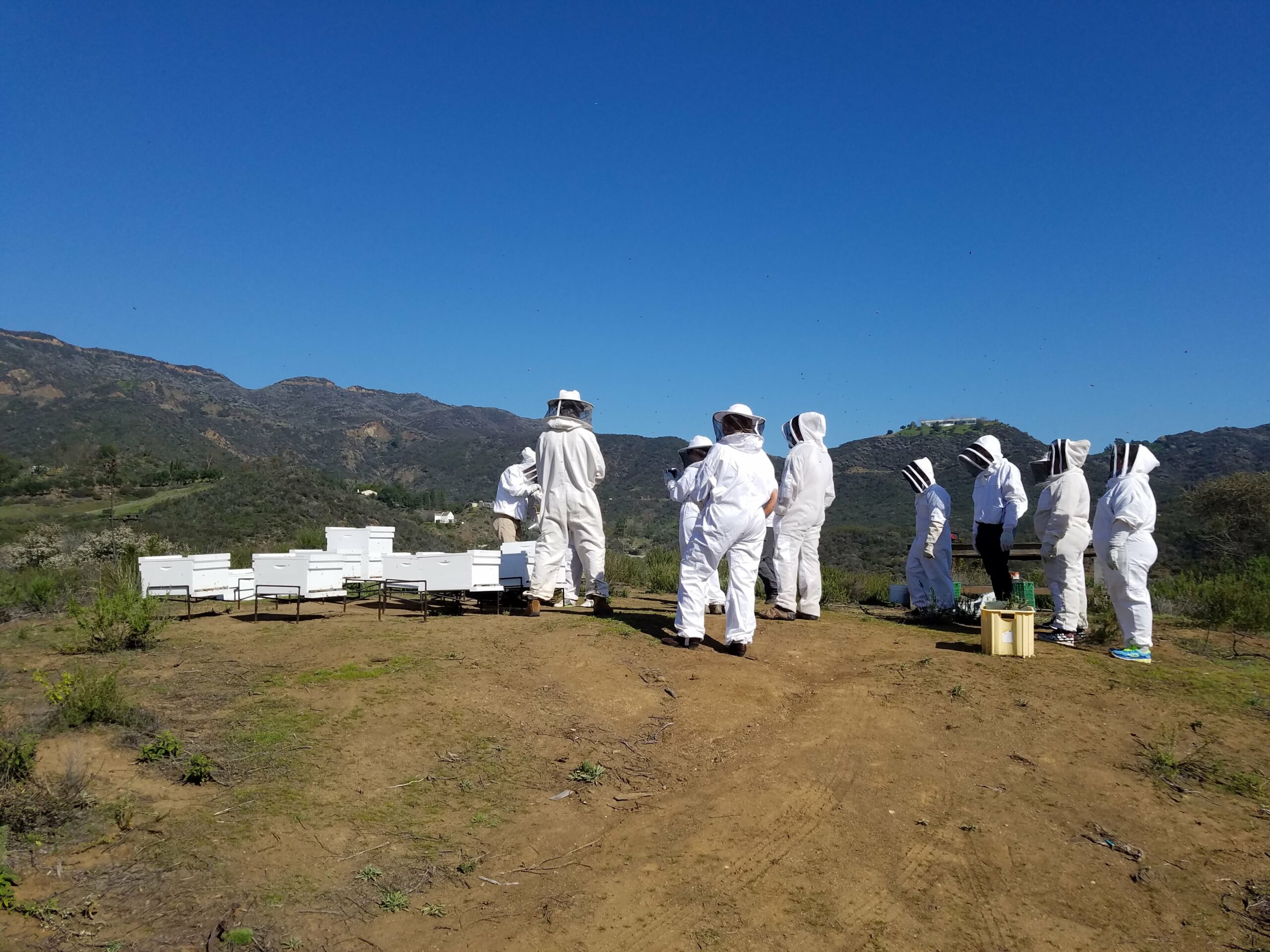
 Rope Course!
Rope Course!